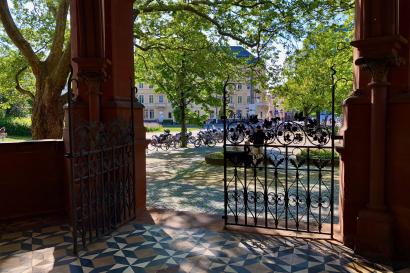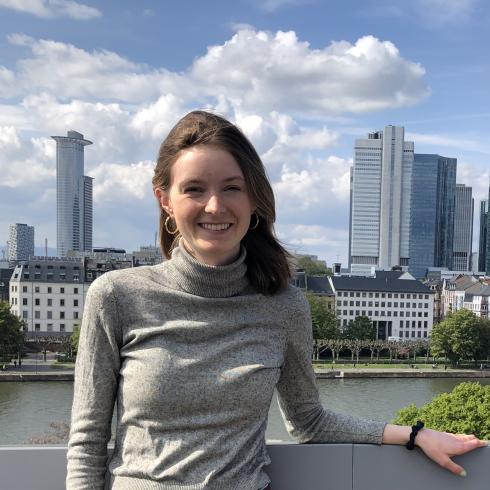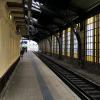
TLDR: I don’t know how many people read these rambles of mine, but if you are a prospective student, and, especially, if you are looking to take classes at a university abroad, please don’t hesitate to reach out. I’m no lifestyle influencer of what-have-you, but there’s fun to be had on my stories. Find me @carolina.unterwegs.
As you will know from reading my last posts, I do not travel often. I can appreciate the romance of train hopping across Europe. Purchasing a rail pass and traveling the spanse of this marvelous, mysterious and new (to me) continent. But quite honestly, I don’t have the giddy-up. There’s so much planning required—I dislike planning—and the act of getting from one place to another is much more glamorous in the imagination than in real life. I also just like Freiburg. My bed is comfortable, my blanket a perfect balance of warm enough for winter but not too warm for spring. I’ve even gotten used to the sound of the intersection, five stories beneath my bedroom window, and can sleep through the wail of the ambulances that pass every half hour or so. My bicycle has become an extension of my body, and I ride it everywhere. I love riding to classes on a misty morning, watching the clouds roll over the hills like breaths of smoke. I feel small, but in a good way. As if I am a part of a larger creature made up of all the cyclers in Freiburg—those that ride with umbrellas open in one hand, those pedaling along in their high heels, those with babies strapped in the backseat or children trundling behind in trailers. Even those too small to walk but somehow have already learned to ride without training wheels or tandems or anything.
But I haven’t come to write about bikes, or my love of Freiburg (the latter I strive to convey regardless), but rather about university—in other words: the real reason I have not traveled. I have just completed my fifth week of classes at the Albert-Ludwigs-Universität Freiburg, where I am a part-time student next to my internship and my regular courses with IES Abroad. I wish I could say it has gotten easier, but aside from the content switch from poetry to prose in one of my classes the semester has marched steadily on just as terrifying, imposter-syndrome inducing and yet almost tear-jerkingly wonderful as the April day I attended my first seminar. I am taking two courses at the university. The first is a seminar called “Exilland Frankreich 1933 bis 1945 - aus deutsch-französischer Perspektive” (France as a country for exiles 1933 until 1945 from the German-French perspective) and it is easily the most fascinating course I have taken in my entire academic career. It’s about German writers fleeing the country in the period before the Second World War to settle in France where they formed publishing groups and friendships, wrote novels in cafés and found a semblance of safety while their country crumbled behind them. The best part of it is—we get to read books written by women. Our current text is nonfiction, written by a professor and scholar of twentieth German and French literature. Up next is Transit by Anna Seghers, where an unnamed narrator seeks refuge in Marseille before finding a passage overseas. We have read bits and pieces of Sylvia Beach and Adrienne Monnier’s accounts of translations and writers and Shakespeare and Company, and I’ve thrilled over the fact that when Sylvia Beach references her “French friend” in correspondence, she really means she and Monnier were deeply in love.
My other course is called “Einführung in die Literaturwissenschaft” (Introduction to the Study of Literature) and I am less doe-eyed about it, to say the least. This class is hard. They (whoever “they” are that run the German literature department at the university) have organized the semester in three parts: Lyrik (poetry), Epik (novels and such) and Drama (plays). Although it is a lecture course with more students registered than my small college humanities major mind can comprehend, the “lecture” is broken into eleven seminar groups. Mine, unfortunately, meets on Friday mornings, which means we have exactly thirty hours to complete our pre seminar work (other more fortunate souls have seminars on Tuesdays which means they have the whole weekend to finish the lecture recordings and practice questions before their deadline). The lectures open for everyone on Wednesday at noon and close at four in the afternoon the day before each seminar. I won’t bore you with the details about these cursed thirty hours I have access to the lectures, instead I will say this: Thursday evenings come as a blessed relief.
The real challenge is that everyone else seems to have already studied most of what we cover in this course while they wrote their Abitur (high school graduation exams). I’ve seen close to none of it, which means I’m facing not only a language barrier but also a sheer quantity of content I genuinely have no knowledge of in my native English. So I’ve nursed headaches and bared my teeth at my computer screen and bought myself consolatory cappuccinos. Then, week after week, I swallow my pride and submit the best work I can do. And to my surprise, my seminar leader (whose intelligence and enthusiasm for the subject I admire a great deal) said to me this morning: “Frau Weatherall, I feel as if you are making great leaps and bounds every week. Your responses are getting longer and more perceptive and thorough. It seems as if it is getting easier for you.” Her praise (translated and paraphrased from German) goes to show. I am embarrassed to admit, it felt like a lifeline.
I never mentioned before why I started on a tangent about traveling. I am on the train bound for Prague, where I will meet some distant relatives and thereby commence the geographic phase of my thesis research. Perhaps I will talk about that the next time around—
Until then, <3 C

Carolina Weatherall
I like telling stories and writing long-winded essays about my cultural observations. I generally wind up where there are books, or people talking about them, or—better yet—people celebrating queer, feminist or minoritized voices in twenty-first literature.






